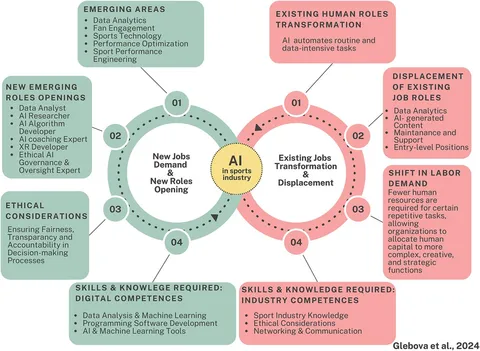Understanding the Basics: What are Algorithms and Analytics?
Before delving into how technology influences sports betting, it’s crucial to understand the foundational elements: algorithms and analytics. An algorithm, in the context of computing and mathematics, refers to a finite sequence of well-defined instructions typically used to solve a class of problems or perform a computation. Algorithms are employed in various forms in technology and data processing to automate and streamline complex tasks.
Analytics, on the other hand, involves the systematic computational analysis of data or statistics. It is heavily used in business, science, and information technology to turn large volumes of data into meaningful patterns and insights. The information gleaned from analytics can help in decision-making and prediction based on statistical probabilities rather than mere guesswork.
Role of Technology in Modern Sports Betting
With the advent of the internet and digital devices, sports betting has seen a seismic shift from traditional methods to more sophisticated, technology-driven practices. At the core of this transformation are advanced algorithms and data analytics, which play a significant role in how betting odds are calculated and bets are placed.
Demystifying Betting Algorithms
Sports betting algorithms are designed to analyze masses of statistical data related to sports, deriving patterns and probabilities that inform odds. These algorithms consider various factors such as team statistics, historical performance, injury reports, weather conditions, and even the betting actions of other bettors. The complexity of these algorithms can vary greatly, from simple models that focus on a handful of data points to complex machine learning models that adapt and learn from new data.
For instance, a basic algorithm for soccer betting might analyze past performance data such as win/loss ratios, average goals scored, and defensive statistics to determine the likelihood of future outcomes. Meanwhile, a more advanced algorithm could adaptively learn from a continuous influx of game data and dynamically adjust the odds based on real-time information such as live game events or changes in team compositions.
Analytics in Sports Betting
Analytics complements algorithms by providing a deeper layer of insight into the data aggregated. This process involves predictive modeling and risk analysis to maximize the potential returns of bets placed. Sports bet analysts leverage these tools to interpret vast datasets, enabling bettors to make more informed decisions.
An example of analytics in sports betting https://ggbet-play.com/casino is the use of performance analytics to assess individual player impacts over time. By understanding a player’s influence on game outcomes statistically, bettors can predict outcomes more accurately when considering potential bets. This analytic approach is often used in fantasy sports competitions as well, where picking the right player can influence the standings significantly.
Practical Applications of Algorithms and Analytics in Betting
In a practical setting, sports betting companies use algorithms to adjust odds in real time. For example, during a live football match, betting odds for the final result will frequently change based on events like goals scored or players being sent off. Algorithmic models automatically process this information and adjust the odds offered to bettors accordingly.
From a bettor’s perspective, using personal betting strategies that incorporate basic statistical tools can help in determining better betting positions. For instance, understanding and applying the concept of “value” in odds, which is an aspect where the odds on offer reflect a probability less than the real likelihood of an event occurring because of data insights derived from in-depth analytics.
Limitations and Challenges
Despite their effectiveness, algorithms and analytics are not infallible. One major limitation is the quality and quantity of the data. Poor data quality or insufficient data can lead to inaccurate predictions and, consequently, losses in betting. Moreover, external factors such as unexpected player injuries or unforeseen weather conditions can dramatically alter the course of a game and defy algorithmic predictions.
Additionally, there is the challenge of data overfitting where an algorithm might perform well on past data but fail to predict future events accurately because it is too finely tuned to the historical dataset.
On the Horizon: The Future of Sports Betting with Technology Advancements
The future of sports betting with the help of technology points towards more integrated, immersive, and user-centric experiences. With advancements in artificial intelligence and machine learning, predictive models are expected to become even more accurate and personalized. This could lead to the customization of betting experiences, where bettors receive odds and suggestions tailored specifically to their betting styles and preferences.

Moreover, blockchain technology promises a more secure and transparent betting environment by decentralizing the storage of betting data and cutting down on fraud.
In conclusion, as technology continues to evolve, the landscape of sports betting will continue to change. Algorithms and analytics will play even more prominent roles, potentially making betting more strategic and insightful rather than purely speculative and based on luck.